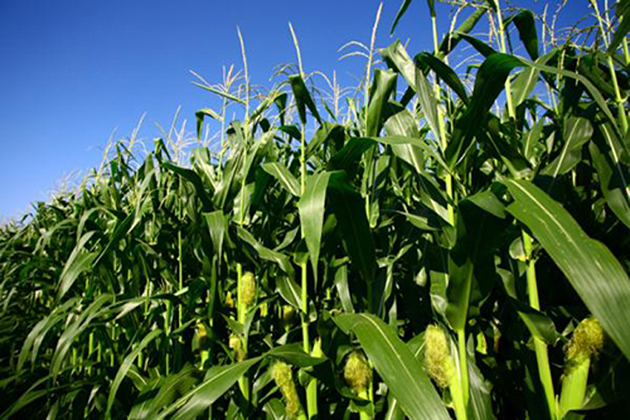
Herald Reporters
The crop situation has improved following rains that have hit the country in the last few days bringing renewed hope of decent harvests.
Crops were deteriorating before the turn of the New Year as the dry spell prolonged across the country.
Hope among farmers is high, especially after the Meteorological Services Department (MSD) said more rains, accompanied by thunderstorms, were expected this week.
Zimbabwe Farmers Union (ZFU) executive director Mr Paul Zakariya said the crop situation was improving.
“Crops are now growing, there is renewed hope among farmers, but there is nothing we can do except hope for the best,” he said.
Mr Zakariya said at this stage, it remains difficult to tell if the nation will have decent harvests.
Seed Co (Zimbabwe) head of agronomy Mrs Wendy Madzura said recent rains had seen a “great improvement” on crops in most parts of the country especially in the Mashonaland provinces, Manicaland and parts of the Midlands Province.
She said there were still some pockets that had not received rains.
“The recovery of the crops is also varied depending on the degree of wilting that the crops had experienced. Most crops were in the temporary wilting stage as opposed to the permanent wilting stage,” said Mrs Madzura.
“The degree of wilting was also varied depending on the adaptability of crops and varieties grown, to heat and drought stress.
“There has been an improvement in the crop status with established crops now at different stages of vegetative growth.”
Mrs Madzura encouraged farmers to take advantage of the rains and apply fertilisers.
“An increase in humidity promotes the development of diseases, as a result farmers are encouraged to scout the field regularly to ensure that pest problems are detected.”
Manicaland Agritex head Mrs Philipa Rwambiwa said the crop situation had improved.
“The crop situation in Manicaland is looking good because the rainfall has improved. The rains have raised hope for the farmers. Pastures for their animals have also improved,” she said.
Mrs Rwambiwa said some crops were a write-off.
According to Agritex, about 45 percent of the maize crop planted in the province is still in good condition while 30 percent is fair and 25 percent poor.
The MSD has issued a thunderstorm alert for Manicaland.
Senior MSD weather forecaster Mr James Ngoma said: “Manicaland and other provinces such as Matabeleland North, Midlands, Masvingo, Harare Metropolitan and all Mashonaland provinces should be mostly cloudy with afternoon and evening thunderstorms. Localised heavy falls remain probable.”
In Masvingo, almost all areas have received rains over the past week prompting farmers to start planting.
ZFU Masvingo regional manager Mr Jeremiah Chimwanda said the rains had improved the state of the early planted maize in areas such as Ndanga and Jichidza in Zaka, Ngundu in Chivi, Gutu West and parts of Masvingo East covering Mbungo and Rippling Waters.
He said farmers in the eastern parts of Gutu, northern Chiredzi, northern Chivi and southern parts of Masvingo and Zaka, were now planting afresh after their first and second crops failed.
Mr Chimwanda urged farmers to plant short season varieties and drought-resistant small grains.
The crop and livestock situation in Matabeleland South remains critical with between little and no improvements recorded in terms of pastures and in some cases, the farmers have failed to plant crops.
The Provincial Agriculture Extension Services officer Ms Simangaliphi Ngwabi said rains had remained erratic with some areas getting nothing.
“We have missed planting targets for major crops including maize where we have planted 12 727 hectares against a projected 120 000 hectares,” said Ms Ngwabi.
In Mashonaland West, Provincial Agritex Officer Mrs Edna Shambare said: “We are currently compiling information from the districts and we hope that the information will be ready by Friday.
“The assessment will look at the coverage of the rains and how they have affected the crops and how the crops have responded.”
In Mashonaland Central, Agritex agronomist Mr Izah Jaide advised farmers to plant short season varieties.
Most farmers in the province are replanting following the prolonged dry spell.
“Crops germinated poorly especially soya bean,” said Mr Jaide.
“The current rains came when farmers still have long season seed varieties and changing to short season varieties can be a challenge.
“However, if a farmer plants long season varieties now they will mature around June and we are not certain if the rains will take us that long, it’s a gamble.”
Farmers will not be able to break the disease and pest cycle.
Mr Jaide urge farmers to plant ultra-early to early seed varieties or shift to less month to maturity crops like white and orange sweet potatoes, sweet beans, cow peas and sunflowers.
